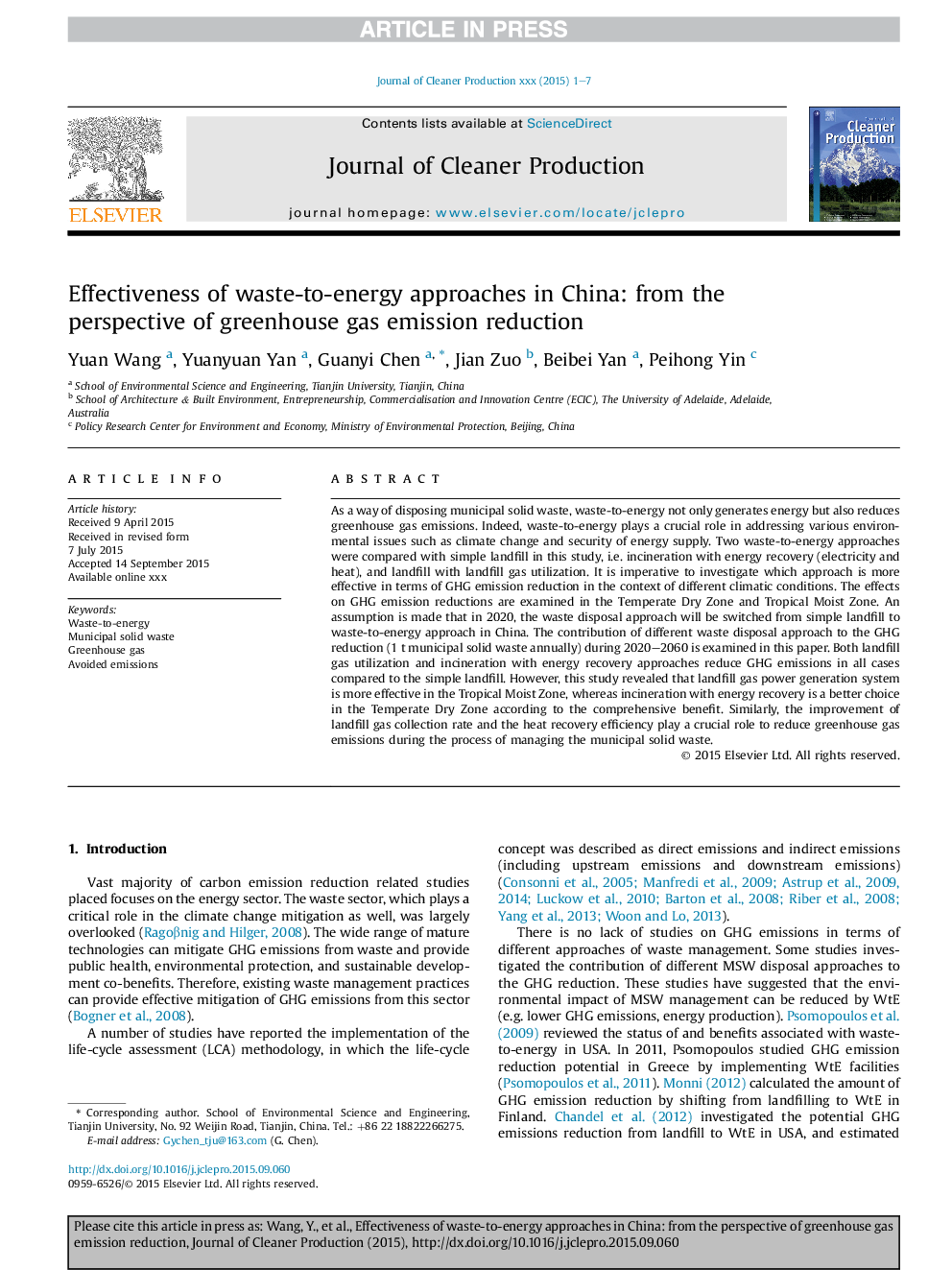| Article ID | Journal | Published Year | Pages | File Type |
|---|---|---|---|---|
| 5479550 | Journal of Cleaner Production | 2017 | 7 Pages |
Abstract
As a way of disposing municipal solid waste, waste-to-energy not only generates energy but also reduces greenhouse gas emissions. Indeed, waste-to-energy plays a crucial role in addressing various environmental issues such as climate change and security of energy supply. Two waste-to-energy approaches were compared with simple landfill in this study, i.e. incineration with energy recovery (electricity and heat), and landfill with landfill gas utilization. It is imperative to investigate which approach is more effective in terms of GHG emission reduction in the context of different climatic conditions. The effects on GHG emission reductions are examined in the Temperate Dry Zone and Tropical Moist Zone. An assumption is made that in 2020, the waste disposal approach will be switched from simple landfill to waste-to-energy approach in China. The contribution of different waste disposal approach to the GHG reduction (1Â t municipal solid waste annually) during 2020-2060 is examined in this paper. Both landfill gas utilization and incineration with energy recovery approaches reduce GHG emissions in all cases compared to the simple landfill. However, this study revealed that landfill gas power generation system is more effective in the Tropical Moist Zone, whereas incineration with energy recovery is a better choice in the Temperate Dry Zone according to the comprehensive benefit. Similarly, the improvement of landfill gas collection rate and the heat recovery efficiency play a crucial role to reduce greenhouse gas emissions during the process of managing the municipal solid waste.
Related Topics
Physical Sciences and Engineering
Energy
Renewable Energy, Sustainability and the Environment
Authors
Yuan Wang, Yuanyuan Yan, Guanyi Chen, Jian Zuo, Beibei Yan, Peihong Yin,
